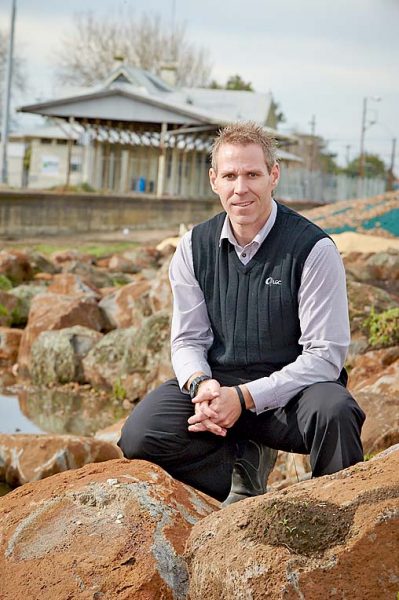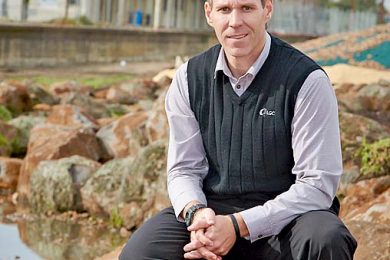
A FAMILIAR face at construction sites over the last two decades, Michael Silvy has hung up his hard hat after 17 years with Mount Gambier City Council.
As long-serving project architect and later regulatory services manager, Mr Silvy worked on many of the city’s biggest construction projects, with the controversial Main Corner overhaul and long-awaited railway land redevelopment among them.
Mr Silvy has landed a coveted role as project manager at the Adelaide Casino, where he will contribute to a proposed $330m expansion.
“The average spend on projects here was $500,000 at most, with the bigger projects around $6 or $7m,” Mr Silvy said, speaking to The Border Watch during his last week at the civic centre.
The external renovation of the building was his final major project in Mount Gambier.
“I was looking for a challenge and this will certainly be a step up from anything I’ve worked on before – everything will be on a much larger scale,” he said.
“I was at the point in my career where I needed to decide if I wanted to stay in my role with council for the next 20 years or move on and try my hand at something else.”
Mr Silvy studied a Bachelor of Architecture at the University of Adelaide and was appointed as the council’s project architect upon graduating.

“I actually started working at council as a student in the summer of ’98,” Mr Silvy said.
“I was back here working during my uni holidays that year, again during the summer and winter breaks in 1999 and in winter 2000 before I started full-time as a project architect in November 2000 after graduation.”
He recalled countless streetscaping and engineering projects he contributed to during 12 years as project architect and five years as council’s regulatory services manager.
“When I was putting my portfolio together to apply for this new job I realised just how many projects I had contributed to,” he said.
“I worked on so many playgrounds and major reserves, the redevelopment of the city centre, including the Cave Gardens, Main Corner and library, we knocked over the old hospital and finally developed the rail land precinct – I had a hand in all of those projects.”
When asked about the projects he found most challenging and rewarding, Mr Silvy said they were one and the same.
“The Rail project stands out the most for me,” he said.
“From concept to delivery, that project progressed over a 10 year period – the community had so much time to think and had so many ideas about how to use that space so there was a lot of expectation.
“It was certainly the most challenging and I was nervous about how it would be received, but it was the most rewarding.”
Mr Silvy said the dynamic public space would continue to evolve.
“There is more to be done there, we have left it open to possibilities,” he said.
“I’m really proud of the Rail Trail and the Margaret Street walkway – they both really added value to the project.”
He said there were only “half a dozen” staff still working at the council who were there at the turn of the millennium.
“At a guess there might be six people who are still there who were working for council when I was appointed,” he said.
“I started at 21 years old and I was really lucky my mentors were always engineers – they have given me that rounded knowledge.
“Everyone I worked with shaped me into the professional person I am in terms of my values, how to talk to the community and build relationships – they are important skills I will take with me into this next job.”










